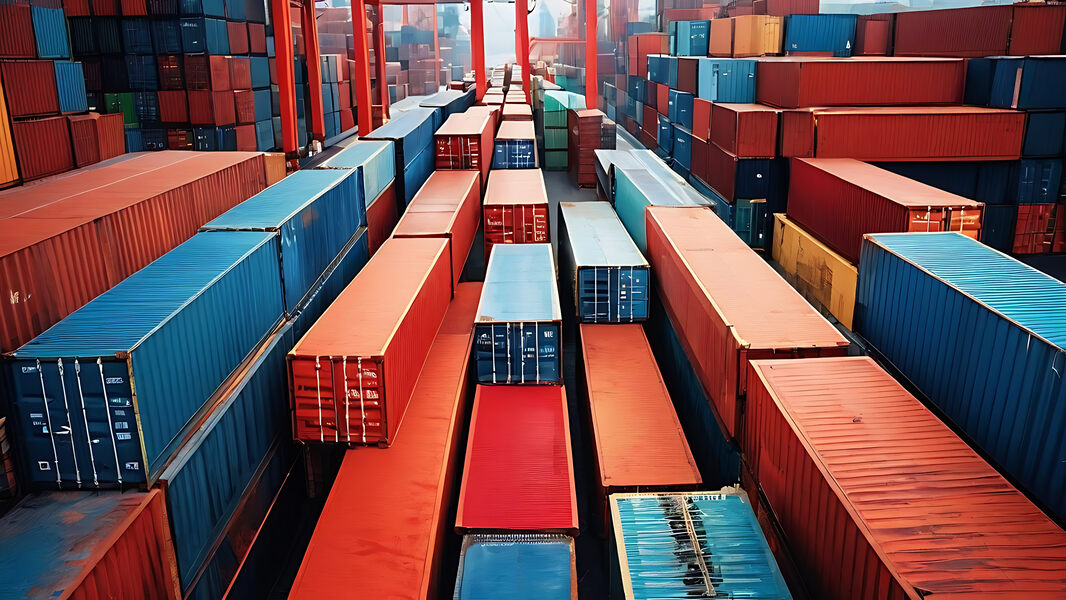ESG – Making sense of the madness
‘The E and the S are competing for attention, and the greener we go, the more social harm we need to account for,’ says IMD Professor of Finance Karl Schmedders....
YouTube

by Simon J. Evenett Published 6 November 2024 in Competitiveness • 5 min read
It would be a mistake to associate this inward turn only with Republican politicians; the Biden Administration took various measures in May 2024 to restrict US market access to imports and the new administration post the November 2024 election may accelerate protectionist measures.
Given that the US imports more than $3tn worth of goods each year, loss of access to the US market would have a significant adverse impact on the top-line revenue of many foreign firms.
But sectors differ in their exposure to US markets in both absolute and relative terms, so blanket statements about exposure to America’s inward turn are unwise. Using international trade data that leverages the UN method of grouping products into “chapters,” a recent Global Trade Alert briefing analyzes which foreign suppliers are most dependent on US market access and therefore are most vulnerable to further protectionist measures.
A foreign sector is more vulnerable to the loss of access to the US market when:
The following suppliers to the US are deemed to be the most vulnerable to high tariff charges or restricted market access:
By contrast, the following sectors are less exposed to potential tariff increases:
In eight sectors, growth in imports of non-US products is so weak that full replacement of lost US market sales would, on current trends, not take place until after 2035.
This highlights the importance of penetrating and growing market share in alternative export destinations to hedge against the potential loss of US market access. Geographic sales diversification can help mitigate this trade policy risk.
Even if the US does not escalate its recent policy of imposing higher import barriers, increased trade policy uncertainty will take its toll on investment, market entry, and sourcing decisions. Fortunately, there are plenty of commercial opportunities beyond US markets.

Professor of Geopolitics and Strategy at IMD
Simon J. Evenett is Professor of Geopolitics and Strategy at IMD and a leading expert on trade, investment, and global business dynamics. With nearly 30 years of experience, he has advised executives and guided students in navigating significant shifts in the global economy. In 2023, he was appointed Co-Chair of the World Economic Forum’s Global Future Council on Trade and Investment.
Evenett founded the St Gallen Endowment for Prosperity Through Trade, which oversees key initiatives like the Global Trade Alert and Digital Policy Alert. His research focuses on trade policy, geopolitical rivalry, and industrial policy, with over 250 publications. He has held academic positions at the University of St. Gallen, Oxford University, and Johns Hopkins University.
9 July 2021 • by Karl Schmedders in Sustainability • 4 min read
‘The E and the S are competing for attention, and the greener we go, the more social harm we need to account for,’ says IMD Professor of Finance Karl Schmedders....
8 July 2021 in Sustainability • 1 min read • 
As CEO of Nestlé, Mark Schneider is arguably the most powerful man in the food and beverage industry. And, as he reveals to IMD President Jean-François Manzoni in the latest episode of...
8 July 2021 • by Natalia Olynec in Sustainability • 4 min read
In Asia, economic growth comes at a high carbon cost. CFOs have a critical role to play in making their companies take account of sustainability, says Natalia Olynec. ...
6 July 2021 in Sustainability • 6 min read
Mark Schneider cites data suggesting that effects of climate change and biodiversity loss have shot to the top of the agenda. ...
5 July 2021 • by Misiek Piskorski in Sustainability • 3 min read
Now that pride month has come and gone it's a good time to take stock of whether your inclusion efforts are more than just a flash in the pan, or something your...
1 July 2021 • by Knut Haanaes, James E. Henderson in Sustainability • 3 min read
Many businesses understand the need to move towards sustainability but aren't sure where to start. There are some basic steps leaders can take in the right direction....
28 June 2021 in Sustainability • 5 min read
Banks and investors engaged in sustainable finance initiatives need to focus on countries where they can make the most impact, and also on striking a better balance between environmental and social goals,...
24 June 2021 in Sustainability • 1 min read • 
“Solar Impulse” explorer Bertrand Piccard on finding purpose. As an explorer, Bertrand Piccard has always had a strong sense of purpose. But now he finds he has a gift for helping other...
14 June 2021 • by Nick Parsons in Sustainability • 3 min read
The impact of CO2 emissions on climate change is one of the most urgent problems facing the world today, but any solution must focus on Asia. ...
7 June 2021 • by John Elkington in Sustainability • 6 min read
Boards and companies have made wide-ranging sustainability goals; regeneration is what they should be talking about ...
Explore first person business intelligence from top minds curated for a global executive audience